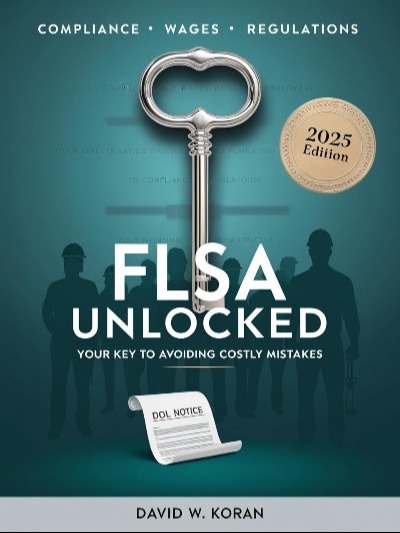Rising Tide of FLSA Lawsuits For 2025: What Employers Need to Know
The landscape of labor law is constantly evolving, and a notable trend impacting businesses across the United States is the increasing number of lawsuits filed under the Fair Labor Standards Act (FLSA). These lawsuits, often centered on allegations of unpaid overtime or misclassification of employees, pose significant financial and operational risks for employers.
Understanding the FLSA and Its Implications
The FLSA, a federal law, establishes minimum wage, overtime pay, and child labor standards. It requires employers to pay non-exempt employees overtime at a rate of one and a half times their regular pay for hours worked beyond 40 in a workweek.
The surge in FLSA lawsuits can be attributed to several factors, including:
- Increased Scrutiny:
- Employees are becoming more aware of their rights under the FLSA, and legal professionals are actively pursuing these cases.
- Complex Regulations:
- The intricacies of FLSA regulations, particularly regarding employee classification, create opportunities for disputes.
- Misclassification Challenges:
- The determination of whether an employee is exempt or non-exempt is a frequent source of litigation. Many companies struggle with the definitions of executive, administrative, and professional exemptions.
- Technological Advances:
- Time tracking software and other technological advances make it easier for employees and their attorneys to gather data that supports their claims.
Key Areas of FLSA Litigation
Common areas of dispute in FLSA lawsuits include:
- Overtime Pay:
- Disputes over unpaid overtime are a leading cause of FLSA litigation. This includes claims related to off-the-clock work, miscalculated overtime rates, and improper deductions.
- Employee Misclassification:
- Employers may face lawsuits alleging that they have improperly classified employees as exempt to avoid paying overtime.
- Independent Contractor vs. Employee:
- The distinction between independent contractors and employees is a frequent source of contention. Employers may be held liable for misclassifying employees as independent contractors to avoid FLSA obligations.
- Off-the-Clock Work:
- Work performed before or after scheduled shifts, or during breaks, that goes uncompensated.
Mitigating the Risk of FLSA Lawsuits
Employers can take proactive steps to minimize their risk of FLSA litigation:
- Regular Audits:
- Conduct periodic audits of payroll practices and employee classifications to ensure compliance.
- Accurate Recordkeeping:
- Maintain accurate and detailed records of employee hours worked and wages paid.
- Clear Policies and Procedures:
- Develop and implement clear policies and procedures regarding overtime pay, employee classification, and timekeeping.
- Employee Training:
- Educate employees about their rights and responsibilities under the FLSA.
- Consult with Legal Counsel:
- Seek legal counsel to ensure compliance with FLSA regulations and address potential issues.
- Accurate Job Descriptions:
- Ensure job descriptions accurately reflect the duties of each position, especially regarding exempt status.
The Importance of Compliance
FLSA lawsuits can result in significant financial penalties, including back pay, liquidated damages, and attorneys' fees. Moreover, they can damage a company's reputation and negatively impact employee morale.
By prioritizing FLSA compliance, employers can protect their businesses from costly litigation and foster a fair and equitable workplace.

